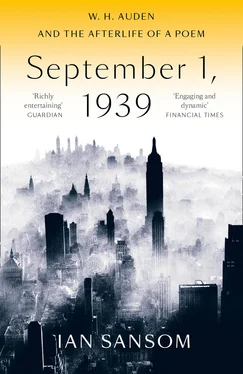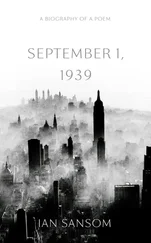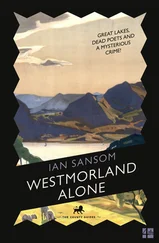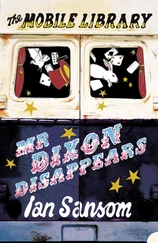Even the title changed. We may know it as ‘September 1, 1939’, but on first publication, in the American magazine the New Republic , on 18 October 1939, it was ‘September – 1939’; in Auden’s collection Another Time (1940) it then became simply number four in a sequence of ‘Occasional Poems’, thus, ‘IV. September 1, 1939’; and not until subsequent versions and revisions did it appear as both ‘1st September 1939’ and ‘September 1, 1939’.
Auden had a strong habit of revision. (He had strong habits generally: drug habits, writing habits.) He liked to change the titles of his poems, just as he liked to change all other aspects of his poems: ‘Palais des Beaux Arts’ became ‘Musée des Beaux Arts’; ‘The Territory of the Heart’ became ‘Please Make Yourself at Home’ became ‘Like a Vocation’; ‘The Leaves of Life’ became ‘The Riddle’; et cetera, et cetera; the list is very long.
Not everyone approved of all these rethinks and rewrites, of course. A lot of people thought them arrogant, or foolish, or merely eccentric. The poet and critic Randall Jarrell thought Auden’s revisions were not only arrogant, foolish and eccentric; he thought they were morally reprehensible: ‘Auden is attempting to get rid of a sloughed-off self by hacking it up and dropping the pieces into a bathtub full of lye,’ he wrote, figuring Auden both as a snake, and as an acid-bath murderer.
(If not the greatest critic of poetry in the twentieth century, Randall Jarrell was certainly the greatest reviewer of poetry in the twentieth century, and to be a great reviewer of anything you need to be given to peculiarly vivid language: Clive James writing on television was given to peculiarly vivid language; Anthony Lane writing on films in the New Yorker ; Dorothy Parker; Virginia Woolf, oddly. But Jarrell was undoubtedly the greatest, the most vivid of all, and he had what one might generously describe as a love–hate relationship with Auden. According to fellow poet John Berryman, Jarrell knew Auden’s mind ‘better than anyone ought to be allowed to understand anyone else’s’, even when Auden was in two minds.)
*
But those tiny little adjustments to the title of this poem, do they really matter?
*
Yes.
No.
Of course.
Not really.
Same as anything else.
Does it matter if you leave out that little pinch of salt in your recipe? Would it matter if I was called Samson, instead of Sansom, or Sampson? Simpson? Ivan, not Ian? Ivor? Ifor? Oscar?
(Some years ago, invited to give a reading at a library, I was introduced as C. J. Sansom – the bestselling author of historical crime fiction, and no relation. When I explained that I was not, alas, C. J. Sansom, two women in the audience got up and left. Which was fine, really. The other half of the audience remained.)
I mentioned that I was afraid I put into my journal too many little incidents. JOHNSON: ‘There is nothing, Sir, too little for so little a creature as man. It is by studying little things that we attain the great art of having as little misery and as much happiness as possible.’
(Boswell, The Life of Samuel Johnson, LL.D. , 1791)
If one were a certain kind of critic I suppose one might note that a poem titled ‘September 1, 1939’ clearly, deliberately recalls Yeats’s poem ‘September 1913’, signalling that this is a poem written in response to another. (In his poem ‘In Memory of W. B. Yeats’, Auden calls Yeats ‘silly like us’, which he certainly was: silly like us for believing that we might be able to simplify and sum things up.)
One would also note that a poem titled ‘September 1, 1939’ clearly announces itself as an American poem: Americans write Month/Day/Year; in the UK we normally write Day/Month/Year.
One might note further that to use a date as a title perhaps suggests that the poem might be something like a diary entry, setting certain expectations and a tone. It suggests that the poem might have been composed or conceived on that specific date, for example – such as Wordsworth’s famous sonnet ‘Composed upon Westminster Bridge, September 3, 1802’ (which was in fact originally published as ‘Composed upon Westminster Bridge, September 3, 1803’, which rather suggests that it might be foolish simply to read dates in poems as facts in a poet’s life, not least because the actual date of Wordsworth’s crossing Westminster Bridge, according to his sister Dorothy’s journal entry, was 31 July 1802).
(One might speculate further, parenthetically, that a minor artist is someone who is very precisely not prepared to risk breaking and bending the rules a little. A definition of the minor artist – the non-Wordsworth, the un-Auden – is that they are not prepared to fiddle around with inconvenient details like dates and facts and figures. As everyone knows, Tennyson got it wrong in ‘The Charge of the Light Brigade’ when he wrote, ‘Into the jaws of Death, / Into the mouth of Hell / Rode the six hundred’ – it was closer to 700 who rode into the jaws of death. But when challenged on the point, Tennyson is said to have remarked, ‘Six is much better than seven hundred metrically, so keep it.’ Poets are not historians, or statisticians.)
One might suggest, furthermore, that a poem whose title appears to commemorate some famous historic event is not necessarily a poem written with the sole intent of commemorating that event. Even Yeats, that great commemorator, who loved to use dates for titles – ‘September 1913’, written after the Dublin lock-out, and ‘Easter, 1916’ – wasn’t writing manifestos or reports. The titles may be significant but they are hardly a full explanation. Yeats’s poem ‘Nineteen Hundred and Nineteen’, for example, was originally titled ‘Thoughts Upon the Present State of the World’, which suggests exactly the kind of meandering activity that is going on in much of his work, which is then given shape and focus by the addition of a date and title, rather than proceeding in a straight line either from or towards it.
Which might lead one, finally, towards the conclusion that though a title may appear to come first, very often it may in fact come last: a poem’s title may be a post hoc rationalisation. It might also be a false sign.
Or, ultimately, just a title.
*
Anyway.
I’m not that kind of critic.
*
September 1, 1939, as it happens, was a Friday.
Auden had just returned to New York from his road-trip honeymoon with his young lover Chester Kallman. For almost three months – ‘the eleven happiest weeks of my life’ – they had criss-crossed the nation, from New York to Washington, New Orleans, New Mexico, Arizona and Nevada and on to California. ‘C is getting quite a tan’, Auden told Chester’s father, ‘and I scribble away.’
But now the summer of love was over. ‘At 32½ I suppose I shall not change physically very much for some time except in weight which is now 154lbs […] I am happy, but in debt […] I have no job. My visa is out of order. There may be a war. But I have an epithalamion to write and cannot worry much.’
( There may be a war. But I have an epithalamion to write and cannot worry much. It’s reassuring, isn’t it, that like us – whatever else was happening – Auden had stuff on . I remember when the Berlin Wall came down, and it was the end of the Cold War and the beginning of a New World Order, and I was in my early twenties and I was working as a farm labourer up in the Craigantlet Hills, just outside Belfast, and I’d listen to the news on the radio in the morning, but it was like listening to news from another planet: I was busy; I had work to do; I had stuff on . It’s the whole point of Auden’s poem ‘Musée des Beaux Arts’, which is about Brueghel’s painting The Fall of Icarus : ‘About suffering they were never wrong, / The Old Masters: how well they understood / Its human position; how it takes place / While someone else is eating or opening a window or just walking dully along.’ It turns out that I have spent a lifetime walking dully along, unable and unwilling to recognise the extraordinary and the other while it’s happening all around me. Like Auden’s description of the dogs in his poem, I have simply ambled on, leading my doggy life. Attending to Auden is probably the closest I’ve ever come to stopping and noticing something truly amazing, an actual Icarus, a boy falling out of the sky.)
Читать дальше












